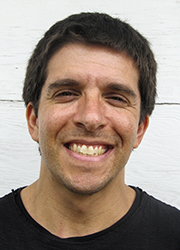A whole new world: Manufacturing offers fruitful opportunities in ‘non-traditional’ jobs
The world of manufacturing is wider than most people know—much wider, according to Ethan Karp, president and CEO of Cleveland’s Manufacturing Advocacy and GrowthNetwork (MAGNET).
“Traditional” jobs are certainly part of the manufacturing ecosystem, says Karp. Ongoing labor shortages have increased demand for welders, maintenance techs, CNC operators and additional positions.
Yet, a Google search casts a bigger net, revealing work likely off most folks’ radar. For instance, EarthQuakerDevices in Akron makes circuit boards integrated into guitar foot pedals. Then you have Great Lakes Growers, a premium hydroponic producer of herbs and lettuce. Schwebel’s Baking Co. is more of a household name—not so obvious is the company’s need for workers able to operate a bread processing machine.
These are all manufacturing jobs, each one far afield from the soot-covered faces and dank dystopian machinery sometimes associated with the industry, Karp says.
Ethan Karp, president and CEO of MAGNET“There are also jobs in marketing and finance,” says Karp. “This is a business, not just an industry. Just because you start as a programmer or welder doesn’t mean you can’t go into management as well.”
MAGNET is spreading the word about these bountiful opportunities at its new headquarters in Cleveland’s Hough neighborhood. The 53,000-square-foot facility, purchased in 2020 from the Cleveland Metropolitan School District (CMSD), is linking people to training and jobs while increasing innovation and providing Northeast Ohio factories with advanced technologies.
Part of MAGNET’s mission is to show students the depth and breadth of local manufacturing openings, adds Karp. Field trips have shuttled 700 K-12 learners through the facility’s high-tech environs so far in 2023,with visitors getting hands-on experience with all kinds of automated equipment. To emphasize unique job opportunities within the industry, MAGNET currently has students building electric race cars from scratch.
“We’re always talking about these core jobs, but then we’re exposing kids to different roles,” says Karp. “When building a car, they are developing their own custom paint colors. Or you might be a quality manager where you’re using sensitive equipment to make sure the quality of your parts is sufficient.”
Opening eyes and minds to manufacturing
The U.S. skilled workforce shortage is no secret. According to the U.S. Bureau of Labor Statistics, nearly eight million skilled-labor jobs were lost from the workforce during the pandemic.
Skills gaps in manufacturing could result in 2.1 million unfilled jobs by 2030, per a 2021 study by Deloitte and The Manufacturing Institute. The good news, according to Karp and other industry onlookers, is that well-paying manufacturing positions are available everywhere. And the jobs available are unique and fun.
For instance, companies may require workers to fix collaborative robots, or to someone to sell parts that comprise the robots themselves.
Nor do high-tech jobs necessarily need a degree, notes Karp. Corporations such as Ford and Intel are seeking non-degreed folks, lower-income individuals looking for better pay, and people in non-coastal areas.
Tracy GreenCreating and industry giant with high-tech heroes
The Biden administration’s CHIPS and Science Act, meanwhile, aims to re-ignite domestic semiconductor manufacturing after decades of offshoring the work.
Successful reshoring requires expanding, training, and diversifying regional workforces so more people can participate in the industry’s growth. At the center of this endeavor is Lorain County Community College (LCCC), which for the past decade has been developing expertise around semiconductors and microelectronic manufacturing at an on-campus training facility.
Today, LCCC is leading a consortium of 10 colleges and universities to prepare Ohio for its potential as a silicon hotbed. Via an Intel grant, LCCC and its partners will provide curriculum and faculty training ahead of the tech giant’s forthcoming semiconductor plant in New Albany, Ohio.
Tracy Green, the college’s vice president of strategic and institutional development, compares the facility’s pending arrival to the auto and steel industry taking root in the Great Lakes. An entire industry embedding itself in Ohio can have a ripple effect through the local supply chain and beyond.
“This is exciting for students, because it’s more than making a widget,” says Green. “In our mind, we are developing high-tech heroes. The work they do will help with national security or advancements in healthcare. That’s the power of this technology.”
Karp of MAGNET knows there are barriers to entry in lucrative manufacturing jobs—among them the understanding that this work even exists. Educational efforts at MAGNET HQ are filling the knowledge gap while opening young minds to a wealth of industry opportunities.
“You can build stuff or fix it—there is a wide range of jobs,” Karp says. “We are not convincing anyone that this is a specific career for them—we just want people to know that manufacturing is awesome. Casting a wide net will capture imaginations and make people think twice when it’s time to choose a career.”



